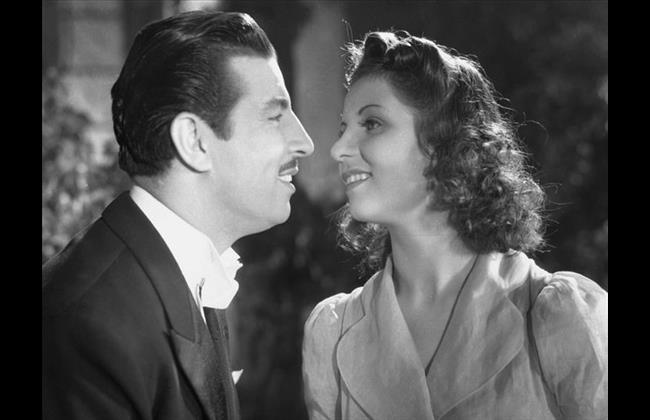Lebanon says goodbye to Sabah
Mirella Hodeib/The Daily Star
27.11.14/Daily Star
BEIRUT: There are very few moments of shared joy in Lebanon’s collective memory. Sabah, who died Wednesday, was responsible for several of them. With her death, so passed one of the totems of Lebanon’s collective memory: the very embodiment of the “joie de vivre a la Libanaise.”Born Jeanette Gergis Feghali, Sabah died at 3 a.m. Wednesday in the Beirut suburb of Hazmieh, at the age of 87. She chose to spend her last seven years away from the limelight and passed away in the Brazilia Suites hotel, where she had spent the final years of her eventful life.
Ever-glamorous, Sabah will not only be remembered for her powerful vocals and acting skills. In a region where social and cultural mores are increasingly drawn to zealotry and isolationism, Sabah was one of a few Arab women who won emancipation, living and loving freely, in public, unconcerned by society’s shackles.
“You want me to tell you what my secret is?” Sabah said in a 2012 interview with Al-Akhbar newspaper. “The secret – that no one knows – is that I am reconciled with myself and I worked very hard to be different, successful, elegant, generous and loving.”
The third, unwanted, daughter of Gergis Feghali – who, like many young Arab men of his time, had longed to father a boy – she often confided that she had grown up scorned and neglected.
“One day I was crying because they forgot to feed me,” she recalled in a TV interview, “and one of my uncles told my parents that I had a beautiful voice when I sobbed.”
Art critic and media expert Jamal Fayad told The Daily Star that in his opinion, Sabah’s death marked the end of the era of “joyful and optimistic” ballads.
“Sabah was a free soul despite the family issues and the tragedies that marked her personal life,” Fayad said. “She had a remarkable ability to separate her personal and public lives and to carry on the fight with a wide smile.”
Sabah began her musical and acting career at an early age, after she attracted the attention of Cairo-based Lebanese filmmaker Asia Dagher, who reputedly had her sign three film contracts all at once.
Dagher brought the young Jeanette Feghali to Egypt to rival another Lebanon-born artist Nour al-Huda, who at the time was asking for a better pay for her work. In the beginning, Fayad said, Egyptian critics were not very welcoming.
It was in Egypt that Jeanette Feghali acquired the stage name Sabah (“Morning”).
Thanks to her wit and innate talent for acting and singing, Sabah won the hearts of the Egyptian public and quickly became a box office star. She starred in movies alongside such prominent Egyptian actors as Anwar Wagdi, Salah Zoulfiqar and heartthrob Roshdi Abaza – to whom she was married for a short period.
“I managed to win Roshdi’s heart and marry him at a time when he was coveted by all the women,” Sabah recalled in the 2012 interview. “I was the one who asked for a divorce because Roshdi was often too pompous and incapable of separating his public and private lives.”
Sabah, who liked to be referred to as “Sit al-Sittat” (the lady of the ladies) was purportedly married nine times. She starred in 83 films and 27 Lebanese stage plays and her musical repertoire included over 3,000 Lebanese and Egyptian songs.
“The death of Sabah is a loss for Egypt as much as it is a loss for Lebanon,” Fayad said, adding that the deceased singer had excelled at rendering the Egyptian persona in her music and acting.
Sabah was not only matchless in performing the Lebanese genre of mawal, the critic said. She also aced Egyptian tarab.
The performer collaborated with the Arab world’s top music composers including Lebanon’s Assi Rahbani and Philemon Wehbe, Syria’s Farid al-Atrache and Egypt’s Mohammad Abdel-Wahhab, Baligh Hamdy and Sayyed Mekkawi.
One of Sabah’s most successful musical collaborations was her pre-Civil War concert with the late Lebanese vocalist Wadih al-Safi at the Baalbek International Festival, where they explored Lebanon’s folkloric repertoire.
Sabah’s hit song “Habibet Oumaha” (Her Mommy’s Love) was composed for her by Farid al-Atrache and Hussein al-Sayyed. Dedicated to her daughter Huweida (the fruit of her marriage with Egyptian violinist Anwar Mansi) “Habibet Oumaha” has been the most popular Mother’s Day song for the past five decades.
Sabah is credited with being the first Arab singer to perform at Olympia and the Palais des Sports in Paris, Carnegie Hall in New York, Piccadilly Theatre in London and the Sydney Opera House in Australia.
She was also a prominent icon in the world of fashion, her daring outfits and dresses having influenced the fashion choices of tens of thousands of Arab women.
Sabah collaborated with, and contributed to the fame of, such Lebanese designers as William Khoury, Robert Abi Nader and Zuhair Murad.
In Fayad’s view, Sabah’s personality and career were unique. Future generations of Arab singers, he said, have a lot to learn from her legacy.
In 2011 Sabah Media launched a TV drama based on Sabah’s life called “Shahroura” – Shahroura (song bird) being one of Sabah’s many nicknames – starring Lebanese vocalist Carole Samaha.
“The series was a flop,” Fayad opined, “and it did not do justice to Sabah’s life and career. Sabah is a larger-than-life character.”
The critic argues that there is one song that encapsulates Sabah’s professional experiences, as well as her personal ones.
In the 1980 Egyptian movie “Layla Baka Fiha al-Qamar” (The Night when the Moon Wept), Sabah, aged 53, performed the tune “Saat Saat” (There are times), written by leftist poet Abdel-Rahman al-Abnoudi and composed by Jamal Salama.
“There are times I love life and enjoy the [little] things,” Sabah sang “and there are times I feel lonely, the words in my mouth meaningless.”



















